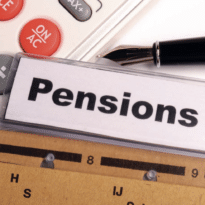Does recovery from Covid-19’s impact require more of a Darwinian than a Keynesian approach? David Coombs, fund manager, Rathbone Multi-Asset Portfolio Funds takes a view.
This article was first published in the October issue of Professional Paraplanner.
Recently, my wife and I paid our £10 ‘entry’ donation and settled down to watch a tribute to saxophonist Charlie “Bird” Parker on YouTube. This was a live stream from Ronnie Scott’s Jazz Club, with Gilad Atzmon. It was excellent, although it’s hard to create atmosphere in a room with no audience. Having been to the club often, it really made us pine for London for the first time since lockdown.
That same day the Prime Minister came under pressure to encourage office workers back to work to support the London economy. To be honest, Ronnie Scott has more influence than the machinery of government.
COVID has been one of the many economic shocks in my career, which started back in the mid-80s. Of course, there have been many over that period: the ’87 crash, the Asian debt crisis, various Argentinian defaults, the UK’s exit from the European Exchange Rate Mechanism, dotcom, Enron, the GFC, the list goes on. Yet, I would argue this shock will probably end up having the greatest long-term impact on both macroeconomics and the micro (individual companies)
Who do we save?
Many businesses in our big cities, in the travel hubs supported by office workers commuting from miles around, are struggling. Pret a Manger has somehow become the media’s barometer on the urban plight.
I feel terrible for all the thousands of people working in these businesses who are dealing with chronic uncertainty over their jobs. The management of these companies have a tough time as well. They cannot wait for the government or their customers to bail them out, they need to plan for a future that is likely to be quite different from the pre-Covid era, even if we are all still in the dark about what it will actually look like.
However, we have to be careful about trying to bail out everyone and everything. No business has a divine right to exist. Some are urging office workers to return immediately to the cities to support these businesses. It’s hard to argue with the sentiment, we all want to help those in need, yet we have to take a step back.
Businesses have to stay relevant to survive, let alone to grow. Since 2008, drunk on quantitative easing, we have started to believe that all businesses should be propped up forever. I don’t remember people calling for everyone to keep renting DVDs to support Blockbuster, or encouraging the purchase of 35mm film to save Kodak. We’re certainly not encouraging people to buy more petrol to save employees at BP. So, Pret? They make great avocado sandwiches, absolutely; and yes, their staff are always amazingly friendly. But I’m not sure that propping up sandwich makers is a good long-term strategy.
So there appears to be a double standard. Should WH Smith be saved now that railway stations are empty? (Its travel retail units saved the business as high street shops declined.) Of course not. We must avoid the mistakes of the ’70s – subsidising industries and businesses that are unable to adapt to modern customer demand. Otherwise we would still have the National Coal Board. But the government must ensure that it is ready and able to support the people who lose their jobs when these businesses fail. They need help to retrain and get back to work in something that has a future. That’s how we improve our country’s productivity and get ahead as people and as a nation.
Taking hold of the opportunities
All this change will create opportunities for new businesses offering products and services that are actually relevant to consumers after the pandemic. It is these businesses that we should be investing in and that the Government should be supporting. It is ok going all Keynesian if you spend the cash wisely. Throwing it away on failing business models will not push up GDP. It will push up taxes and ensure the recession lasts longer, much, much longer.
And trying to pressure office workers, and their employers, into doing the right thing for a business rather than their own families – particularly if the business is owned by private equity – is a policy doomed from the very start.
London will survive because, as the tribute to Charlie Parker reminded me, it remains the cultural capital of the country. I still want to spend a lot of time in London and I will continue to do my bit to support the London economy, but I suspect that I will also be supporting my neighbourhood in Wiltshire more than I have in the past, which is arguably a good balance. So I’m sorry, Upper Crust, it’s not personal…



































